Highland Ridge Hospital, in Salt Lake City, UT, helps adolescents, adults, and seniors who are struggling with prescription drug addiction through an unmatched quality of care and support. Located in Salt Lake City, Utah, Highland Ridge is a leading provider of mental health & prescription drug addiction treatment.
Learn About Prescription Drug Addiction
Learn more about prescription drug addiction treatment at our Hospital in Salt Lake City
It happens every day – people go to the doctor and obtain a prescription for medication to treat a physical problem. Most people take their medication exactly as directed for the time prescribed and stop without any problems. Some people, however, are attracted to the psychoactive properties of certain medications, notably prescription painkillers, anxiolytic medications, and stimulants.
If you’re addicted to prescription medication, you’re probably spending a great deal of time obtaining new prescriptions to avoid withdrawal. You’re probably engaging in reckless and illegal behaviors to obtain your pills. You may notice that your friends have long abandoned you, unable to watch you slip further down the slope of prescription medication abuse. You may find that you’re doing things you’d never thought you could do in order to feed your addiction. Without help from a prescription drug addiction treatment center or hospital, you are trapped in a cycle of addiction and withdrawal. It doesn’t have to be this way.
Highland Ridge Hospital is a community leader in addiction treatment, having over 25 years of experience in treating people who are chemically dependent. We carry our hard-won knowledge everywhere we go, helping those who come to our prescription drug addiction treatment center with compassion, care, concern, and competence. At Highland Ridge Hospital, you can learn the skills needed to get clean and lead a sober, happy life.
Helping a Loved One
Helping a loved one or family member get treatment for prescription drug addiction
If your loved one has developed an addiction to prescription pills, you’re probably at a loss as to how to help. It’s likely you feel helpless and scared, afraid for your loved one’s safety. You may feel guilty that you didn’t stop the addiction sooner and brokenhearted that your loved one is suffering. You don’t want to say the wrong thing and make it worse. Here are some tips for gently guiding your loved one into treatment at a center or hospital for prescription medication addiction:
Listen, Don’t Judge: It can be very hard for someone who abuses prescription medication or other drugs to admit that he or she has succumbed to addiction. No one starts out taking drugs planning to become an addict. Do your best to listen openly and honestly to what your loved one has to say. Offer compassion and suggest that treatment may be the only next step.
Learn: One of the most important things that you can do for your loved one is to learn as much as you can about addiction. Read about it, talk to a therapist at a treatment center or hospital about it, and go to an A.A. or N.A. meeting to see what life is like for addicts. This will allow you to best understand what your loved one is going through.
Practice Self-Care: If you don’t take care of yourself, you’re not going to be much good for anyone – including you. That’s why taking time for yourself is so important during this troubled period. Do one nice thing for yourself each day. Meet with a therapist who specializes in addiction and talk about your struggles with someone you trust. Join Al-Anon or Nar-Anon so that you can gain support from other families and loved ones of an addict.
Why Seek Inpatient Treatment
Why seek help for prescription drug addiction
Many people believe that because prescription medications are prescribed by a physician and regulated by the FDA that they are safe. Unfortunately, that’s not always the case, especially if you’re taking pills that aren’t prescribed for you or in a higher quantity than was prescribed. Prescription drugs are every bit as dangerous as street drugs and can be the gateway to heroin. You may be terrified to admit that you have a problem, ashamed that things have gotten so rough, and unsure what to do next. You may not have hit bottom, but you’re getting close and it’s scaring you. It’s time to change your life around and seek care at a treatment center or hospital for prescription drug addiction so that you can live the life you want.
An inpatient program at a treatment center or hospital for prescription pill addiction is one of the best ways to jump start the recovery process. Recovery doesn’t happen overnight, but with a solid foundation of the tools learned in an inpatient program, it can be life-long. Inpatient addiction treatment offers you the ability to leave the cares and stresses of daily life behind as you focus upon the one thing that truly matters – getting well. You’ll be able to get any medication you require at a treatment center or hospital to treat co-occurring mental disorders under control as you learn the coping skills necessary to lead a sober, healthy life.
Our Philosophy
Our philosophy & benefits of prescription drug addiction treatment
For over 25 years, Highland Ridge Hospital has helped countless people recover from the throes of addiction. Our multidisciplinary treatment team works as a single cohesive unit to develop treatment strategies that will work most effectively for you. We know addiction treatment isn’t a one-size-fits all approach and therefore, we tailor our treatment plans at our center for prescription drug addiction based on your needs. At Highland Ridge, Hospital we know that you’re more than the sum of your symptoms; you’re a whole person who needs care and support that heals the whole person – mind, body, and spirit.
What We Offer
Prescription drug addiction treatment options available at Highland Ridge Hospital
When you come to our treatment center for addiction recovery from prescription medication abuse, you’ll first undergo a number of examinations to allow us a whole picture of the challenges you’re facing. Our medical evaluations at Highland Ridge Hospital will let us determine if you’re suffering any medical complications associated with prescription drug abuse as well as the presence of other types of drugs and alcohol in your system. The psychiatric examinations will let us determine the severity of your addiction and whether or not you’re struggling with co-occurring mental disorders. We’ll take the results of these evaluations and sit down with you to create a plan of care for your stay with us at our treatment center for prescription drug addiction.
Detox is the first step for most people who come to Highland Ridge Hospital chemically dependent on prescription drugs. During rehab, you’ll be safely and effectively detoxed from all drugs in your system in a compassionate, caring environment. You’ll be closely monitored by our detox team around the clock to prevent complications and ensure that you are comfortable.
Medication may be used during detox at our treatment center to help prevent unpleasant withdrawal symptoms and allow you to better focus on your recovery. Medication may be used in the short term and then tapered off. Other people at Highland Ridge Hospital may need longer medication treatments to manage any co-occurring disorders they may have. The usage of medication will be based upon the recommendations of the treatment team.
Individual therapy can be a great place for people who are addicted to prescription drugs to begin their recovery. You’ll be able to work side-by-side with a therapist at our treatment center to help uncover the reasons for your addiction, the complications addiction has caused in your life, and ways to prevent relapse.
Group therapy is very important for people in recovery as it allows you to work with other people who are struggling with similar challenges so that you can all grow, learn, and heal. We offer A.A. and N.A. meetings as well as process-based and psychoeducational groups at our treatment center to teach you more about addiction, allow you to work through your emotions, and support each other during this stressful time.
Family therapy can be supremely helpful for you and your family to get back on track. Addiction may have tested the bonds in your family and we’re ready to help you mend some of the bridges that may have been burned. Family sessions will give your loved ones a chance to talk about the way addiction has impacted their lives and will allow you the chance to teach your loved ones about the disease of addiction. We’ll also connect your loved ones with available community resources such as Al-Anon and Nar-Anon.
In addition to our traditional therapeutic approaches, Highland Ridge Hospital is proud to offer a variety of experiential methods that help us to heal the whole you. These methods may include the following:
- Art therapy
- Pet therapy
- Recreation therapy
- Yoga
- Music
- Leisure time
- Meditation
- Craft time
- Movie nights
- Wii games
- Gym & exercise time
- Puzzles, cards, and board games
Continuing Care
Continuing care at Highland Ridge
As the time of discharge approaches, you’ll work with the discharge planner to help create a plan of care for your continued recovery. Some may choose to join a residential treatment program. Many people choose to step down from our inpatient program into structured outpatient programs such as intensive outpatient (IOP) or partial hospitalization programs (PHP). Others may have made enough progress at our prescription rug addiction treatment center to return home with appointments set up for traditional outpatient therapy.
Our treatment center is in Salt Lake City (Midvale) and serves residents from all over Central and Northern Utah. Call one of our admissions counselors today for a free, confidential screening to see how Highland Ridge Hospital can help you regain a happy, healthy life.








